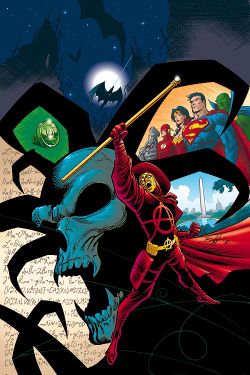This is a spinoff of my timeline The Fire Never Dies (check my sig) focused on the pop culture of the TFND-verse, particularly American comic books (although I'd love to see film and eventually TV get a look in).
Since I'm not quite ready to share control with others, I'll be making the final determination about what is and isn't canon.
Here are a few broad guidelines:
- As of 1921, the American Socialist Union has explicit legal protections against discrimination on the basis of race or gender.
- Racism still exists but is widely despised, given the legacy of the KKK.
- Sexism is more common, but women are rapidly entering the workforce.
- Homosexuality has been decriminalized, but is still taboo.
- All American businesses are now worker-owned cooperatives. It is legal for an outside entity to provide funding in exchange for creative influence, but not for a share of the profits.
- All media cooperatives have an elected production committee that decides what gets made. Their attitudes generally reflect those of the studio's workforce.
- Technology will be assumed to be progressing roughly the same.
Comic Books:
- With the American comic books industry represented by a single union, my plan is that in the realm of mainstream superhero comics, there will (eventually) be a single shared universe. No DC vs Marvel rivalry.
- Superhero comics will probably focus more on teams than IOTL.
- Wonder Woman will exist and will be gay from the outset (although expect this to be controversial).
Film and Television:
- In addition to the various "private" studios, there are two government-run studios: Industrial Film Cooperative and Red Army Studios. IFC mostly makes propaganda (and, increasingly, documentaries) while RAS produces war movies (many of which are really good).
- Red Army Studios' directors stable includes Buster Keaton and George Patton.
- One studio, New York-based Lady Liberty Productions, is dominated by female filmmakers.
- Most other studios will hire female filmmakers, but still assume that they can only make films aimed at a female audience.
- Star Trek will eventually exist.
Since I'm not quite ready to share control with others, I'll be making the final determination about what is and isn't canon.
Here are a few broad guidelines:
- As of 1921, the American Socialist Union has explicit legal protections against discrimination on the basis of race or gender.
- Racism still exists but is widely despised, given the legacy of the KKK.
- Sexism is more common, but women are rapidly entering the workforce.
- Homosexuality has been decriminalized, but is still taboo.
- All American businesses are now worker-owned cooperatives. It is legal for an outside entity to provide funding in exchange for creative influence, but not for a share of the profits.
- All media cooperatives have an elected production committee that decides what gets made. Their attitudes generally reflect those of the studio's workforce.
- Technology will be assumed to be progressing roughly the same.
Comic Books:
- With the American comic books industry represented by a single union, my plan is that in the realm of mainstream superhero comics, there will (eventually) be a single shared universe. No DC vs Marvel rivalry.
- Superhero comics will probably focus more on teams than IOTL.
- Wonder Woman will exist and will be gay from the outset (although expect this to be controversial).
Film and Television:
- In addition to the various "private" studios, there are two government-run studios: Industrial Film Cooperative and Red Army Studios. IFC mostly makes propaganda (and, increasingly, documentaries) while RAS produces war movies (many of which are really good).
- Red Army Studios' directors stable includes Buster Keaton and George Patton.
- One studio, New York-based Lady Liberty Productions, is dominated by female filmmakers.
- Most other studios will hire female filmmakers, but still assume that they can only make films aimed at a female audience.
- Star Trek will eventually exist.
